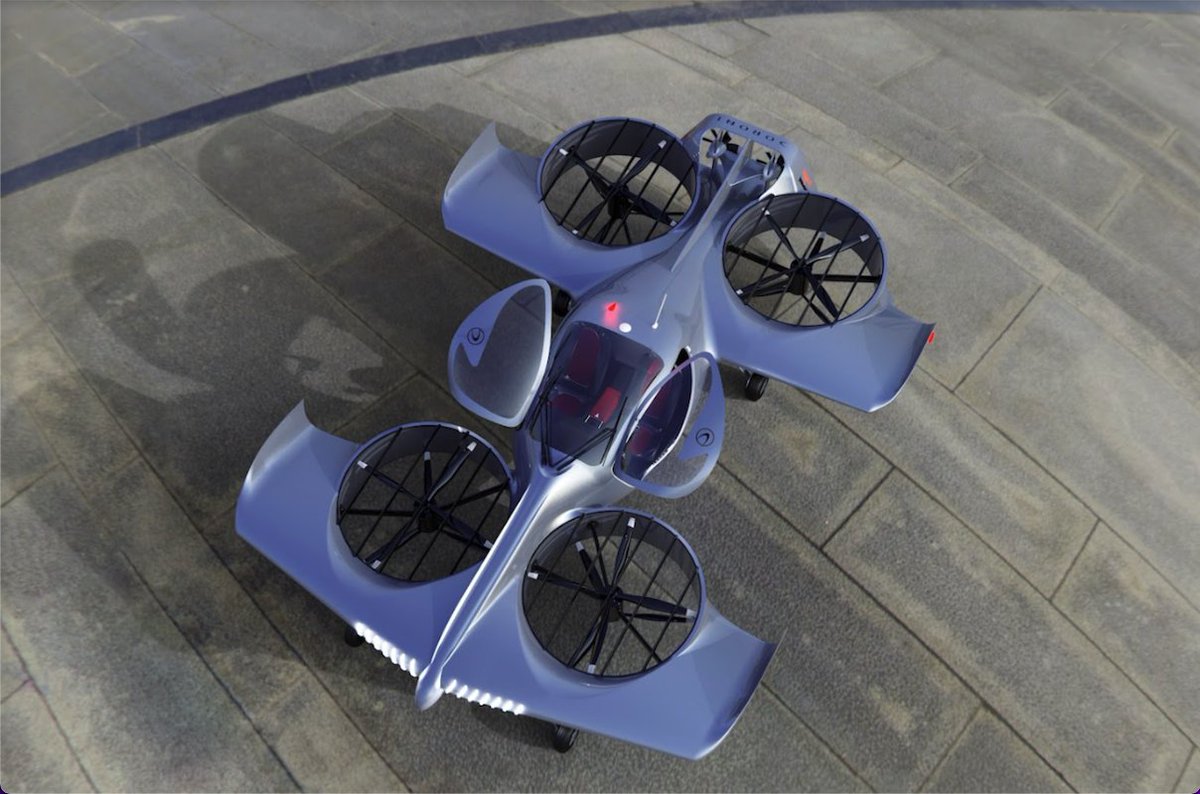
Make room Jetson and Air One, a new personal flying car developer is stepping up with US-based Doroni working to launch an electric takeoff and landing (eVTOL) aircraft for private use by the end of 2024.
Doroni is developing its H1 eVTOL flying car with the objective of having a prototype version to unveil later this year and begin initial testing soon thereafter. Following initial plans to produce a single-passenger personal flying vehicle, Miami-based Doroni responded to potential customer feedback by pivoting toward a two-person craft. It recently put its planned first series of 36 future planes up for pre-order, the majority of which have already been reserved.
Read: Sold-out Swedish Jetson ONE personal eVTOL set for delivery in 2022
In shifting to a two-seat eVTOL, Doroni’s current designs rely on a centrally positioned passenger and pilot module positioned between a pair of forward and rear wings, each of which will be fitted with two encased rotors. Price for the craft is expected to range from between $150,000 to $190,000 – considerably higher than Jetson’s solo-passenger plane at $92,000, but closer to Air One’s $150,000 two-seater.
With higher cost comes increased capabilities, however.
For example, Doroni’s H1 eVTOL is expected to have a 500-lb. payload capacity, and 60-mile flight autonomy – a relatively long distance for flying cars currently under development. The H1 will travel at a top speed of 140 mph, compared to Jetson’s personal plane, which can fly 210 lb. up to 63 mph for 20 minutes.
The Air One, meanwhile, carries a total 440 kg of added weight and will fly distances of up to 109 km on a single charge at top speeds of 155 km/h.
According to comments by CEO Doron Merdinger, Doroni hopes continued development of the H1 right up to the first expected deliveries in late 2024 will extend its range limit to nearly 120 miles, and possibly increase maximum velocity, depending on regulatory and certification restraints. Doroni says it is working on its H1 eVTOL flying car with support from original aviation equipment manufacturers that include Honeywell Aerospace, Garmin, and Amphenol.
Read: After Jetson, Air One enters personal eVTOL vehicle market
While Jetson’s design uses onboard LiDAR sensors to ensure automated obstacle avoidance intended to allow clients to buy, strap in, and fly the craft with no pilot training or certification, Doroni will walk customers through 20 hours of in-house tutoring to ensure safe operation of the H1.
“In order to get started, customers will need a current valid driver’s license and completion of a 20-hour training course provided by the company,” a Doroni communiqué noted. “The company projects to have a full-scale, fully-functional flying H1 eVTOL prototype completed within the next several months and is targeting a Light Sport Aircraft certification with the FAA ahead of product launch in the second half of 2024.”
FTC: We use income earning auto affiliate links. More.


Comments